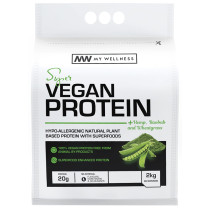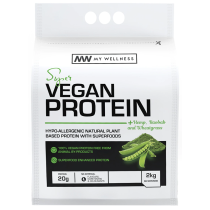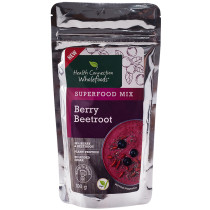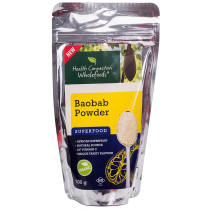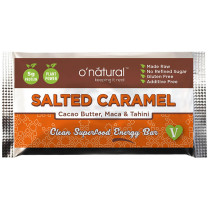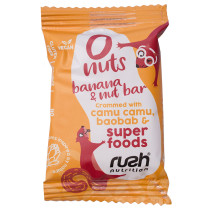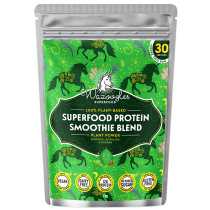Baobab Fruit Powder
Member of the plant family Malvaceae
Baobab Fruit
Other Name(s):
Freeze Dried Baobab Fruit Powder

Baobabs thrive in semi-arid and subtropical parts of Africa. They prefer hot annual temperatures between 20°C and 30°C and the seeds will only germinate when the soil is hotter than 28°C! Mature baobabs require no irrigation whatsoever but it can take up to 20 years before they are considered mature and begin to bear fruit.
Is Baobab Fruit Faithful to Nature?
Yes.
Baobab Fruit Powder is a natural ingredient with amazing nutritional benefits. It grows naturally, without human interference and is harvested sustainably. The powder is made without any waste byproducts.
Benefits: Why is Baobab Fruit Used?
Powerful Antioxidant
Baobab Fruit Powder is one of the world's most powerful antioxidants.
Full of Nutrients
Baobab Fruit Powder is very high in fibre and one of the highest sources of Vitamin C.
Aids Digestion
Baobab Fruit Powder supports healthy digestion.
Supports the Gut
Baobab Fruit Powder supports a healthy gut microbiome.
Baobab Fruit Powder can be found on health food stores as single ingredient superfood supplement but is also used
Baobab Fruit Powder is sustainably harvested from wild Baobabs. After the seeds are removed, the fruit is frozen at very low temperatures (around -35°C) and then sealed in a vacuum chamber where the moisture is pulled from the fruit. This preserves the nutrients better than sun-drying or drying in an air tunnel environment because the nutrients are exposed to less oxygen.
Antioxidant power is measured using something called Oxygen Radical Absorbance Capacity (ORAC). Baobab fruit powder has one of the highest ORAC values in the world at 140,000 μ mol TE/100g.
Baobabs are the largest succulent variety in the world.
Other common names for baobab include: Muvhuyu (Tshivenda); Shimuwu (isiTsonga); Isimuhu, Umshimulu (isiZulu); Mowana (Setswana); Moyo (Northern Sotho).
Some of the oldest baobab specimens in South Africa have been dated to be more than six thousand years old.
Climate change represents a very real threat to the continuation of baobabs. They are very particular about germination conditions… Non-profit organisations like the Baobab Foundation are working with communities to ensure that our children, grandchildren and great grandchildren will be able to enjoy the shade of these beautiful plants.
Notice: The information provided here is not intended as medical advice and is for educational purposes only.



